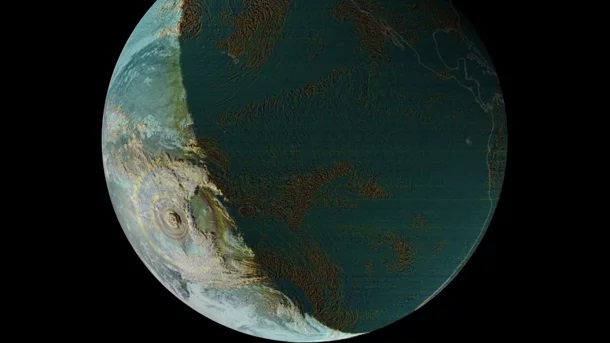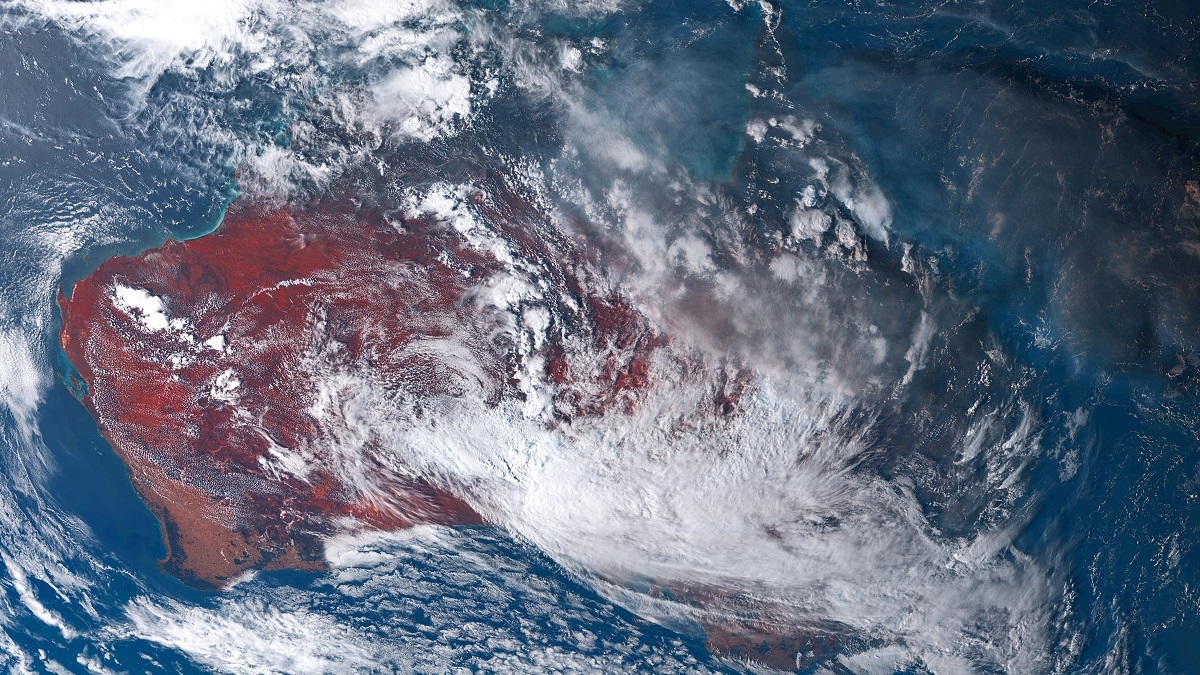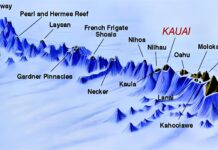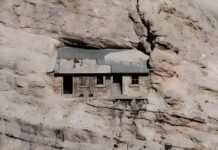The devastating volcanic eruption in Tonga at the beginning of the year was the most violent since the best-known eruption of Krakatau in 1883, according to a detailed analysis of measurement data from more than 3,000 sensors and instruments around the world, which has now been presented in the scientific journal Science.
Of particular interest were so-called Lamb waves, which resemble sound waves but have a particularly low frequency. They are generated only in the most powerful explosions in the atmosphere, and until now there had been very few high-quality recordings of them, the report says. That changed in mid-January, it said, as waves triggered by the eruption of the Hunga Tonga-Hunga Haʻapai underwater volcano circled the Earth several times.

Volcanic eruption in Tonga: more data than in 1883.
The compiled data set is a “remarkable” collection, explains study leader Robin Matoza of the University of California, Santa Barbara. The gigantic explosion generated a wide variety of atmospheric waves, including sounds that could be heard more than 10,000 kilometers away. They were all recorded over a wide range of frequencies, he said. The data provided a much better understanding of the propagation of such phenomena. This, he said, will have implications for monitoring nuclear explosions, volcanoes and earthquakes. The researchers do not know how exactly the sounds heard in Alaska originated. They don’t think they could have come from Tonga. Instead, they must have been produced somehow along the way.
The Hunga Tonga-Hunga Haʻapai underwater volcano had erupted with immense force on January 14 and then especially on January 15. The eruption and the ensuing tsunami claimed at least six lives, and the islands of Tonga were covered by a thick layer of ash. The ash cloud was the highest in the satellite era. Many buildings in the island nation were destroyed, and in some cases entire settlements were lost. Tonga was then largely cut off from the outside world for weeks because the only submarine cable had been severed. Inadequately secured aid supplies from Australia and New Zealand had then also led to an outbreak of Covid-19 on the island.
Tonga’s economy is now slowly recovering from the effects of the eruption and the Corona eruption, reports the International Monetary Fund. Decisive action by the island nation’s government and rapid international assistance have protected the most vulnerable, among others, it said. But the country now faces the daunting challenge of rebuilding its economy, it said, while rising global energy and food prices are fueling inflation. As of mid-February, the World Bank had estimated the damage done in the country at $90 million, or nearly 20 percent of the island nation’s gross national product.
[Update 05/18/2022 – 10:00 a.m.] Information on the economic situation in Tonga added.
[mho)






